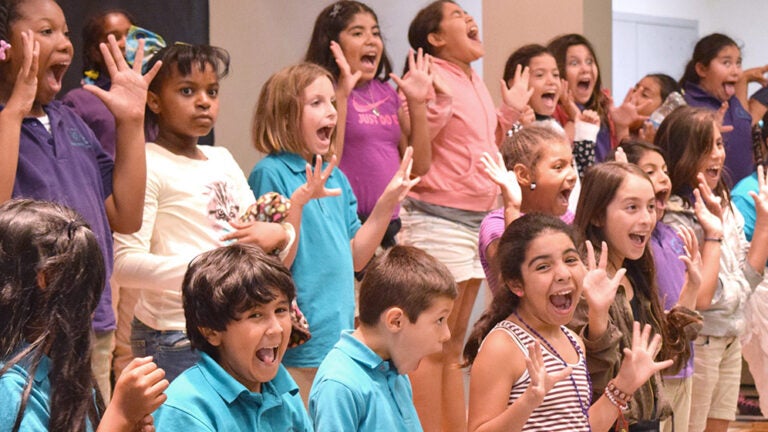
(USC Photo/Gus Ruelas)
Does Learning Art, Dance and Music Boost Young Brains?
There’s a growing body of research that suggests music and other arts can affect childhood brain development.
Arts education changes young lives: It fosters talent and careers, creates an outlet for self-expression and opens doors to new cultures and ideas. But there’s also a growing body of research that suggests that art boosts young brains.
A recent study conducted by USC’s Brain and Creativity Institute (BCI) revealed that instrument instruction appears to accelerate brain development. Neuroscientists compared schoolchildren learning to play musical instruments with peers who weren’t. They found that the young musicians had more-developed auditory pathways, which connect the ear to the brain. The more-developed pathways could potentially jumpstart a child’s abilities in areas beyond music, such as language and reading.
Engagement with the arts gives you ways to think about problems as multifaceted, and as being open-ended with no single correct answer
Mary Helen Immordino-Yang
A 2015 Korean study proposed that music and dance instruction may reduce the risk of depression and increase self-esteem in children. A 2013 study by the Centre for Educational Research and Innovation, based in France, suggested that music education strengthens IQ, academic performance, word decoding and phonological skills; that theater education strengthens verbal skills; and that students who study visual arts are stronger in geometrical reasoning.
These studies aren’t unequivocal, though. “What is more clear is the benefit that the arts have on psychological capacities for imagining other perspectives and continually reinventing oneself,” says Mary Helen Immordino-Yang, an associate professor of education, psychology and neuroscience at USC who focuses on the role arts exposure plays in the development of wellbeing, self-expression, purpose and relationships. “We know something about the development of the underlying neurological mechanisms that support those capacities, so we can infer things that we think are probably happening with brain development.”
So what can be inferred?
“Engagement with the arts gives you ways to think about problems as multifaceted,” she says, “and as being open-ended with no single correct answer.”
Immordino-Yang studies emotional development, especially in adolescents, and she has a research project funded by the National Endowment for the Arts that looks at intergenerational storytelling and its effects on cognitive development, emotional wellbeing and creative thinking.
We know arts education helps kids and adults express themselves, she says, “where you actually represent what matters to you, and what your experiences are, and what you feel like, and what you believe. That’s really critical for healthy human development for learning and for brain development. It is the person underneath the scores that we care about.”



